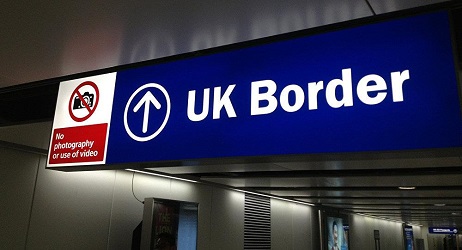
Whiteness: an ever-shrinking category?
by Laura Brewis
Despite the political and media representation of the current ‘immigration crisis’, the issue of mass migration of people into the United Kingdom is not a new phenomenon. There was a great deal of public distress in the early 1800s about Irish migrants, in the late 1800s about Jewish migrants and, in my opinion, the current discourse on European migrants is simply the latest in a long tradition of ‘moral panics’ (Cohen, 1972) surrounding immigration.
The UK immigration policy, while masquerading as a collection of ‘common sense’ ideas, perhaps hides a more sinister objective. In previous years, most notably in the 1960s, in policies spanning across both main parties, the UK favoured migration from Europe over migration from Commonwealth countries, despite those born in the Commonwealth being legally entitled to British citizenship. This affected non-white immigrants disproportionately (Erel et al., 2016). This may seem to be reasonable, given the UK’s (now questionable) membership in the EU, but has the consequence of favouring white or light skinned migrants over black and minority ethnicity (BME) migrants. This is a classic example of institutionalised racism and discrimination, so subtle in form, that it may appear to be ‘common sense’.
The differentiation between the desirability of migrants no longer simply ends with the colour of their skin. The differences in experiences of the A8 migrants (e.g. those from Poland) and the A2 migrants (Bulgarians and Romanians) show that, even between Eastern European countries, there is a marked distinction. ‘Whiteness’ or the sense of acceptance in the UK is now not only restricted by the colour of a migrant’s skin, but also by their accent, their religion and their country of origin (Fox et al., 2012). It is also worth noting that having a Western European nationality is not perceived in the same way as an Eastern European nationality. The acquisition of western European languages (such as French and German) is seen as desirable and a skill many employers look for, which is in dramatic contrast to examples of people being violently assaulted simply for speaking Polish in public (Dearden 2016). It seems that being white is no longer enough to avoid discrimination.
This constricting of the sense of ‘whiteness’ has had huge implications on the experiences of immigrants living in the UK. In the year following the 2016 EU Referendum, there was an increase of 29% in hate crimes reported to the police when compared to the previous year (Home Office, 2017, p. 1). This is attributed to a genuine increase in the rates of hate crimes being committed, whilst also accepting the (somewhat limited) influence of improvements in police recording of these crimes. Many argue that this increase in hate crime and anti-foreigner sentiment is behind the year ending in September 2017 bringing the highest numbers of EU citizens emigrating from the UK in a decade (BBC News, 2018). This decrease in net migration, when compared to previous years, may have a detrimental effect on the British economy, as EU migrants contribute considerably more in taxes than they take through their use of public services.
While the focus of this post has been on UK attitudes towards immigration and the effects of these attitudes, it is clear that anti-immigration sentiment and shrinking definitions of belonging are not problems unique to Britain. These issues are present across Europe, as evidenced by the close defeat of the Front National in the 2017 French elections, the islamophobic and anti-immigration Alternative for Germany being the third largest party in the Bundestag, and the Greek neo-Nazi party Golden Dawn finishing third in the 2015 election.
There is also a clear replication of this type of rhetoric in the USA, shown by the recent (2016) election of Donald Trump on a platform of strong anti-immigration policies. While Trump’s threats of ‘wall-building’ are yet to come to fruition, he has signed into legislation many anti-immigration bills including the controversial ‘Muslim Travel Ban’.
The shrinking definitions of ‘belonging’ to countries like the UK and the USA are making it harder and harder, not only for people to migrate to these countries but also for them to feel integrated and accepted.
While many of us picture modern western society as increasingly liberal and accepting, it seems clear to me, through the results of recent referendums and elections in Europe and the election of Trump in the USA, that we are in fact trending towards a more right-wing and anti-foreigner global society than we have experienced in a long time.
References
BBC News (2018) Migration figures: Highest number of EU nationals leaving UK in a decade, 22 February [Online].
Cohen, S. (1972) Folk devils and moral panics: the creation of the Mods and Rockers, London: MacGibbon and Kee
Dearden, L. (2016) UK Student Stabbed in Neck for Speaking Polish Describes Brutal Post-Brexit Assault in Telford, The Independent, 20 September [Online].
Erel, U., Murji, K. and Nahaboo, Z. (2016) Understanding the Contemporary Race-Migration Nexus, Ethnic and Racial Studies, 39(8), pp. 1339 – 1360
Fox, J., Moroşanu, L. and Szilassy, E. (2012) The Racialization of the New European Migration to the UK, Sociology, 46(4), pp. 680 – 695
Home Office (2017) Hate Crime England and Wales, 2016 to 2017. (Accessed: 28 February 2018).

0 Comments